Boris Johnson says he's "ended the gridlock" in British politics by delivering the Conservatives' best general election result since 1987 - achieved by tearing seats from Labour in its heartlands.
With all the UK's 650 constituencies having declared their results, the Tories won 365 seats to deliver a huge House of Commons majority of 80.
It was the largest majority of any government since 2001 and the Conservatives' highest number of seats since Margaret Thatcher was their leader.
Key points:
- Tories secure best election result since Margaret Thatcher in 1987
- Labour suffer worst result since 1935
- Liberal Democrat leader Jo Swinson loses her seat to SNP and will be replaced
- Chuka Umunna, Dominic Grieve and Anna Soubry also among those to lose seats
The prime minister this morning visited the Queen to form a government having secured what he described as a "powerful new mandate to get Brexit done", after the party won 47 more seats than in the last election in 2017.
Speaking at a victory rally in Westminster before sunrise this morning, Mr Johnson hailed a political "earthquake" which saw Labour support crumble in its heartlands in the face of a Conservative landslide.

He told Tory activists: "We did it, we pulled it off didn't we?
"We broke the deadlock, we ended the gridlock, we smashed the roadblock."
He added: "With this election I think we've put an end to all those miserable threats of a second referendum."
Mr Johnson said "politicians have squandered the last three years, three and a half years in squabbles", but "this election means that getting Brexit done is now the irrefutable, irresistible, unarguable decision of the British people".
"I will put an end to all that nonsense and we will get Brexit done on time by the January 31 - no ifs, no buts, no maybes," he said.
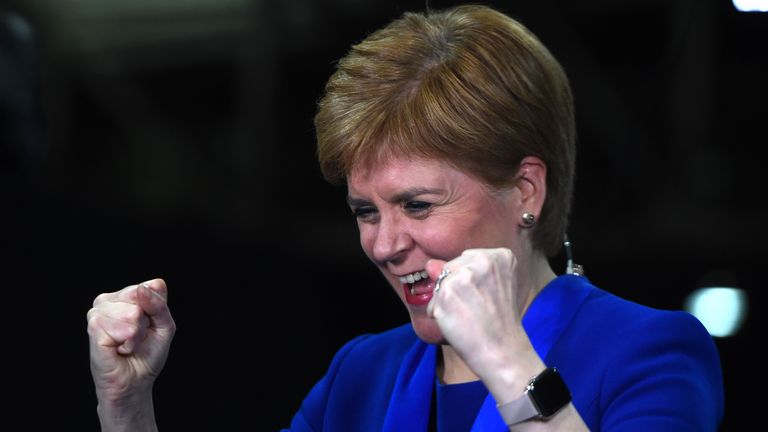
And he had a message for the traditional Labour voters who switched sides and "lent" the Conservatives their vote.
"Your hand may have quivered over the ballot paper as you put your cross in the Conservative box and you may intend to return to Labour the next time round," said the PM.
"If that is the case, I am humbled that you have put your trust in me... and I will never take your support for granted."
Meanwhile - as their fabled "red wall" of seats in the North and Midlands crumbled in the face of Mr Johnson's pro-Leave message - Labour suffered their worst election result, in terms of seats, since 1935.
They won 203 seats - some 59 seats down on their result at the 2017 election.
Jeremy Corbyn responded by announcing he would not lead Labour in any future general election campaign after a "very disappointing night".
But he suggested he would not be departing as Labour leader immediately and would instead oversee a "process of reflection" in the party.
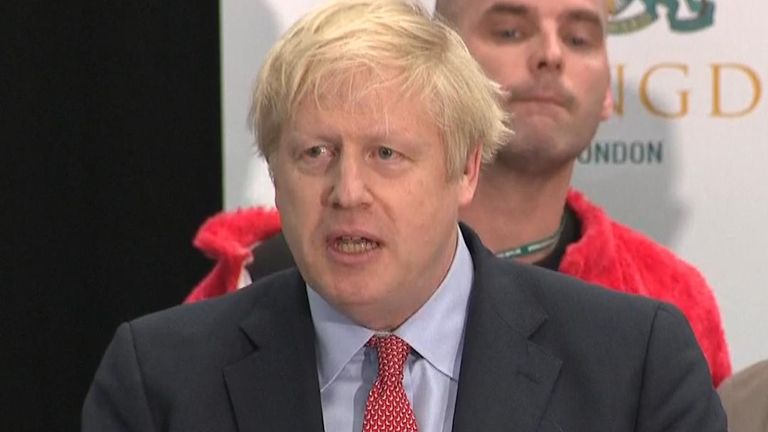
Liberal Democrat leader Jo Swinson also suffered a miserable night, after failing to secure re-election to parliament by losing her East Dunbartonshire seat to the SNP.
Her party will hold a leadership election in the New Year to choose her successor.
"This is clearly a setback for liberal values," she said after the Lib Dems failed to make a breakthrough on Thursday night.
"But there are millions of people across the country who believe in them.
"By coming together to fight for them, we can create a positive future."

Her party won 11 seats, down one from 2017.
Ms Swinson's loss in her constituency came as the SNP also gained other seats to return to near-complete dominance across Scotland. The party claimed 48 seats, a rise of 13 compared with two years ago.
SNP leader and Scottish First Minister Nicola Sturgeon refreshed her call for a second Scottish independence referendum as she claimed her country and the rest of the UK are on "divergent paths".
She announced plans to formally demand the Scottish parliament be given the power to hold a second vote on leaving the UK before Christmas.
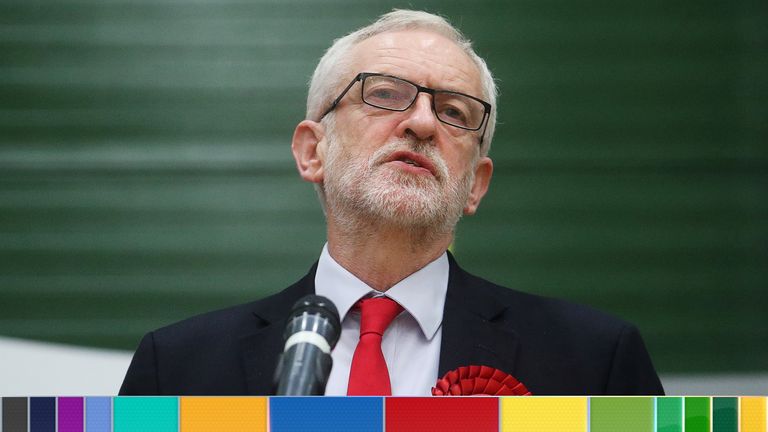
For the first time in Northern Ireland's history, nationalist MPs were set to outnumber unionist MPs, after the DUP lost two seats.
This included the DUP's Westminster leader Nigel Dodds losing his North Belfast seat.
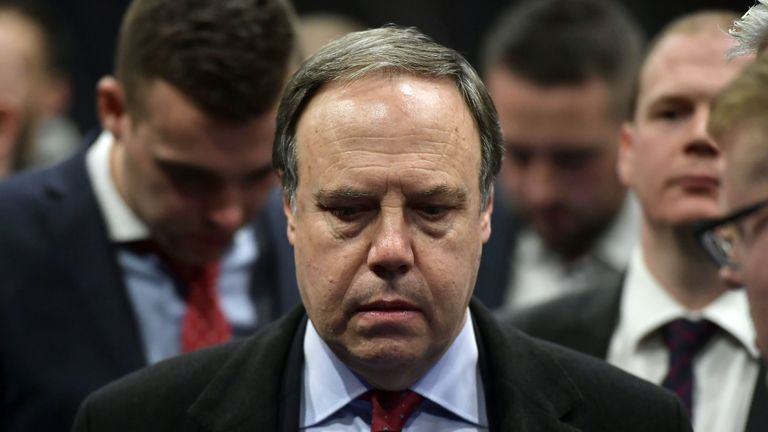
The foundation of the Conservatives' election victory was based on winning a swathe of seats in Leave-supporting areas, many of which had been held by Labour ever since they were created.
The result suggests a fundamental realignment of UK politics, with many of those constituencies won by the Tories on Thursday night having delivered large Labour majorities under former prime minister Tony Blair.
These include seats such as Bolsover, which had been held by Labour since it's creation in 1950, and Newcastle-under-Lyme, which had been held by Labour since the end of the First World War.
In a recording obtained by website BuzzFeed, Mr Johnson told aides at the Conservative Party's headquarters that "no one can now refute" his "stonking mandate" to deliver Brexit.
He added: "We must understand now what an earthquake we have created. The way in which we have changed the political map of this country.
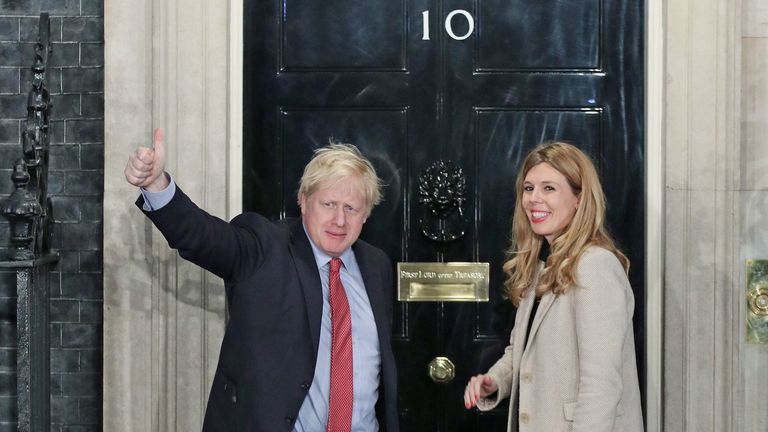
"We have to grapple with the consequences of that, we have to change our own party, we have to rise to the level of events, we must... we must answer the challenge that the British people have given us."
However, it was not a complete success for Mr Johnson on Thursday night, with the Tories' losing seats in Remain-supporting areas such as Putney, won by Labour, and St Albans, won by the Lib Dems.
